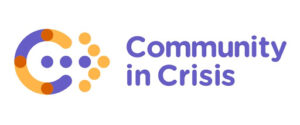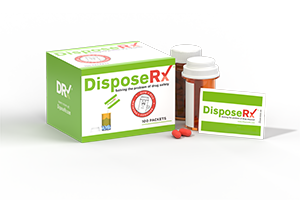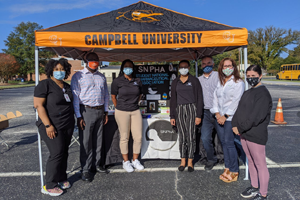One of the most rewarding facets of being part of the DisposeRx family is meeting people from across the country who are committed to help those suffering from substance use disorder as well as prevent addiction. Their passion, dedication and perseverance are nothing short of astonishing. We meet many of them through our Community Outreach program and are truly honored to cross their paths and support their efforts.
Over the years a number have become great advocates and champions of our product, connecting us with people and organizations who appreciate and share our mission.
 Such is the case with New Jersey’s Community in Crisis (CIC)—one of the few federally-funded Drug Free Communities (DFC) singularly focused on the opioid crisis. CIC is a coalition of dedicated volunteers that was founded in 2013 following two overdose deaths in the space of a week in Somerset County.
Such is the case with New Jersey’s Community in Crisis (CIC)—one of the few federally-funded Drug Free Communities (DFC) singularly focused on the opioid crisis. CIC is a coalition of dedicated volunteers that was founded in 2013 following two overdose deaths in the space of a week in Somerset County.
“Reducing the supply of unwanted or unused opioids is one of many strategies and is something every community can and should do to prevent opioid diversion,” said Andi Williams, Executive Director, Community Outreach and Development for CIC. “Everyone can play his or her part—whether it’s organizing drug take back days or pharmacists providing consumers with education on safe disposal.”
Andi learned about DisposeRx at a conference in 2019 and contacted us through our Community Outreach program. She then shared information about the DisposeRx program with one of her task force members, Dr. Gail Granowitz, who is also an anesthesiologist at Short Hills Surgery Center.
 The surgery center’s anesthesiologists had recently launched a multimodal analgesia perioperative program designed to reduce the number of narcotics prescribed to patients following surgery. The program was designed to educate key stakeholders in four steps: 1) anesthesiologists, 2) staff/nurses, 3) surgeons and 4) patients/significant others/caregivers.
The surgery center’s anesthesiologists had recently launched a multimodal analgesia perioperative program designed to reduce the number of narcotics prescribed to patients following surgery. The program was designed to educate key stakeholders in four steps: 1) anesthesiologists, 2) staff/nurses, 3) surgeons and 4) patients/significant others/caregivers.
“We had a meticulous plan in place and knew we had to provide education and get buy-in from everyone internally before we rolled out the program to patients,” said Dr. Idrees Ahmad, anesthesiologist. “The hardest part was convincing the surgeons to change their prescribing pattern of writing large numbers of narcotics—30 to 60 tablets—at discharge. But everyone recognizes that we have an epidemic, so changing behaviors and reducing the quantities was a little easier than anticipated.”
Dr. Ahmad shared that parents of teenagers are the most engaged group and are “all in,” wanting to know everything they can about how to manage the pain of their teenager without narcotics in hopes of preventing addiction.
Now that the Short Hills staff has fine-tuned the first phase of their program, they are working with CIC to dispense DisposeRx packets to patients and collect data. During the first two to three weeks, which commenced on January 27, 2020, they will survey patients who receive education only about their medication disposal behaviors. Then they will begin dispensing DisposeRx packets, provide education and survey patients to ask how many pills they took and whether or not they disposed of their medications in a timely manner using the DisposeRx packets.
“Our hope is that many are destroying the medications,” said Dr. Ahmad. “Further, we hope to learn more about how we can refine our protocols and perhaps reduce the quantities of prescriptions even further.”
Based on the volume of surgical patients at Short Hills, the data collection project, which is being spearheaded by Susan Torchen, APN, should be completed around the end of May 2020 and will establish a baseline of behavior.
“Our nonprofit is tackling the epidemic on as many fronts as possible through collaborations and support,” Williams said. “I am so thrilled I was able to connect the dots from a surgery center willing to take extra steps and use valuable resources to educate patients to a company like DisposeRx that is willing to fund innovative initiatives. This a huge step in the right direction that we hope will serve as a model for other medical facilities to replicate.”





Pingback: NJ Nonprofit and Surgery Center Collaborate with DisposeRx to Change Behaviors | Short Hills Surgery Center